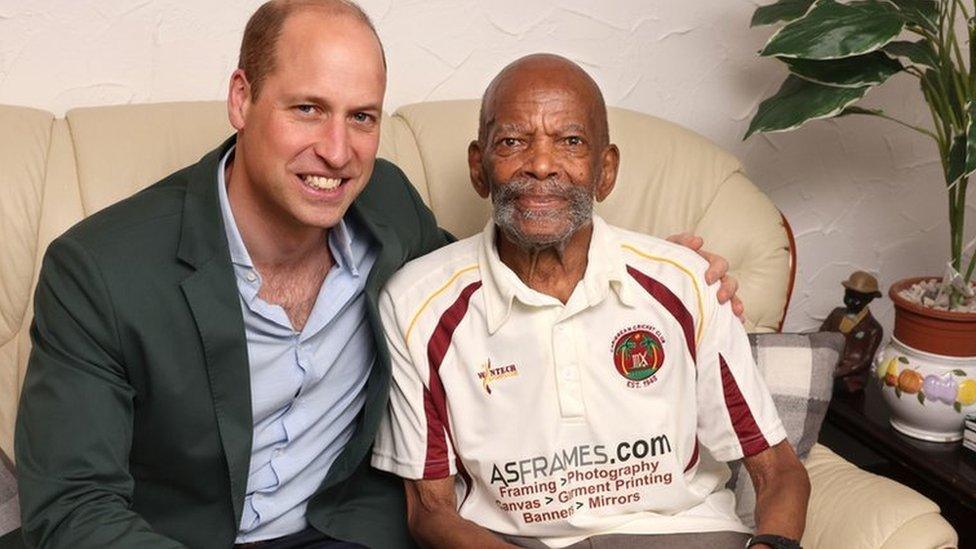Racism: More to be done on discrimination - Windrush generation
- Published
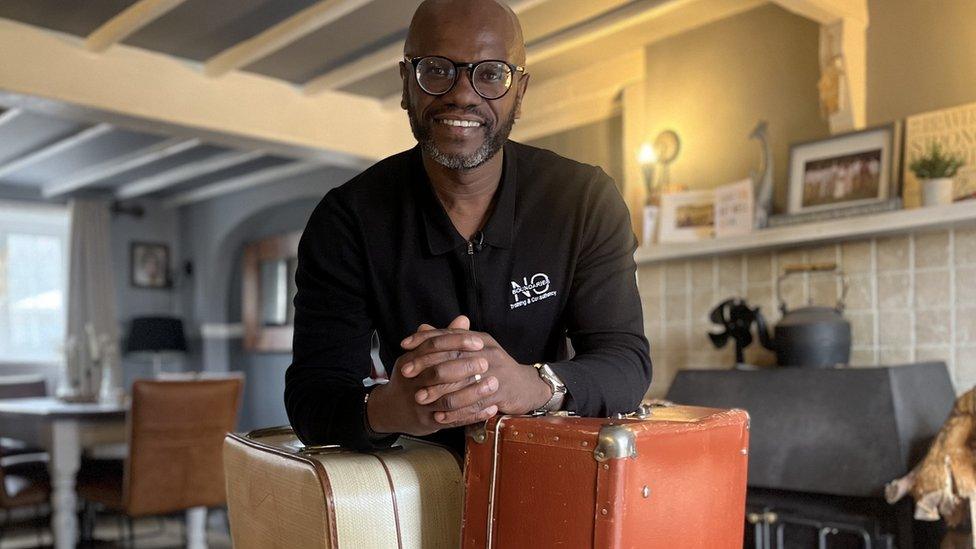
Sean Wharton's relatives travelled to the UK from St Kitts with all their belongings in two little suitcases
More still needs to change on racism and discrimination, the Windrush generation has said.
People who arrived from the Caribbean and other parts of the Commonwealth to help rebuild post-war Britain were often barred from work and suffered racist abuse.
A new documentary in Newport highlights their contributions to Wales.
Its participants have found success in the armed forces, arts, industry and sports.
The Windrush generation name came from the first ship leaving the Caribbean for Britain in June 1948.
The Empire Windrush carried more than 1,000 passengers, responding to Britain's call for workers.
In the following 40 years, thousands of people from Commonwealth countries arrived, with many settling in Wales.
The documentary Through the Lens: Our Windrush Stories follows five people from Newport.
Producers Billy Mazoya and Nkechi Allen Dawson wanted to highlight the contributions of Windrush emigres to Wales.
Although not part of the Windrush generation, Mr Mazoya said he was shocked to find similarities with his own experiences.
"The discrimination, the racism, the difficulties in society that they experienced back then, it's still very much relatable," he said.
Ms Allen Dawson said the story was one of "resilience above all else".
"I don't think that the Windrush is celebrated enough by those outside of the Windrush communities and... by younger generations," she said.
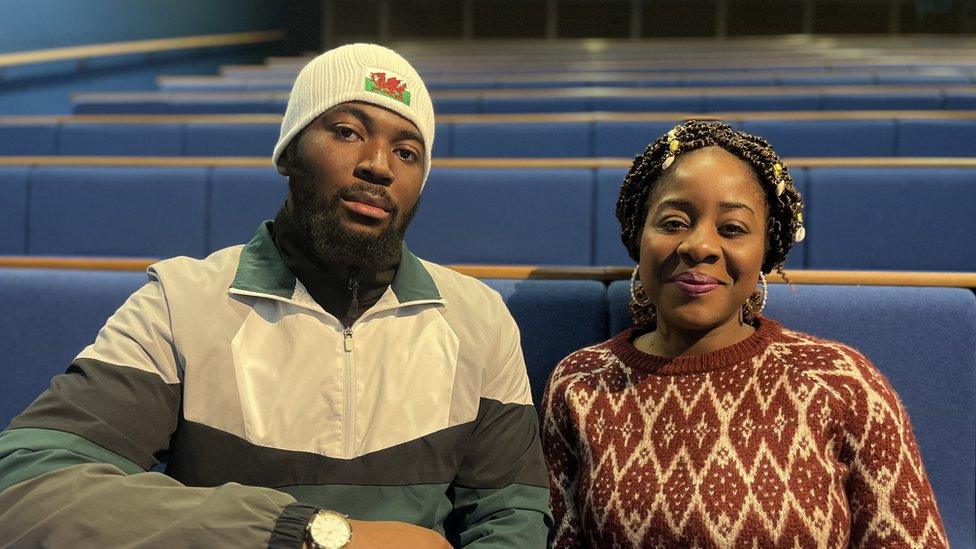
Billy Mazoya and Nkechi Allen Dawson have created a documentary to raise awareness about the contributions of the Windrush generation in Wales
Roy Grant, 82, was born in St Catherine, Jamaica, and was sent by his parents to the UK when he was 19.
It was his first time on a boat and he slept on the fifth deck, above the noise and heat of the engine.
He was chaperoned by two near-strangers and remembers the crossing as "very arduous, very demoralising, lonely at times".
Mr Grant initially went to Birmingham after arriving in Southampton, but experienced discrimination as he tried to secure work.
Some business owners closed their doors in his face and, one day, he approached a man on the street when he did not have enough for the bus fare home.
The man gave him two pennies and said "take a couple more with you".
His cousin later explained the man meant: "Take another two boys home with you to Jamaica."
Mr Grant said: "I was so ashamed, I felt in a way I had sacrificed myself to this man and he insulted me, which didn't give me much more appetite to be good to anyone... but I got over it."
In July 1962, he moved to Wales where a company took him on as an apprenticeship engineer.
He married and had four children, and now has grandchildren and great-grandchildren.
He developed a carpet-cutting tool which revolutionised the industry and became the first black chargeman at a toolmaking engineering works in Wales.
"Black people and others came here, they rebuilt this country," he said.
He later started a catering business before retiring and is now a community leader, poet and author and became the first black man to produce a literature exhibition in Newport in 2010.
"I will always be British, but my nationality is Jamaican. My adopted home is [here], I'm a Welshman," he said.
Siblings Linette Haines, 64, and Sean Roberts Wharton, 55, grew up in Newport after their parents settled there.
"Everybody said the streets were paved with gold and then when they got here, all they got was resistance," Mr Roberts Wharton said.
Ms Haines was born in St Kitts and her parents sent for her and her sister when she was six.
She remembers arriving "absolutely freezing cold".
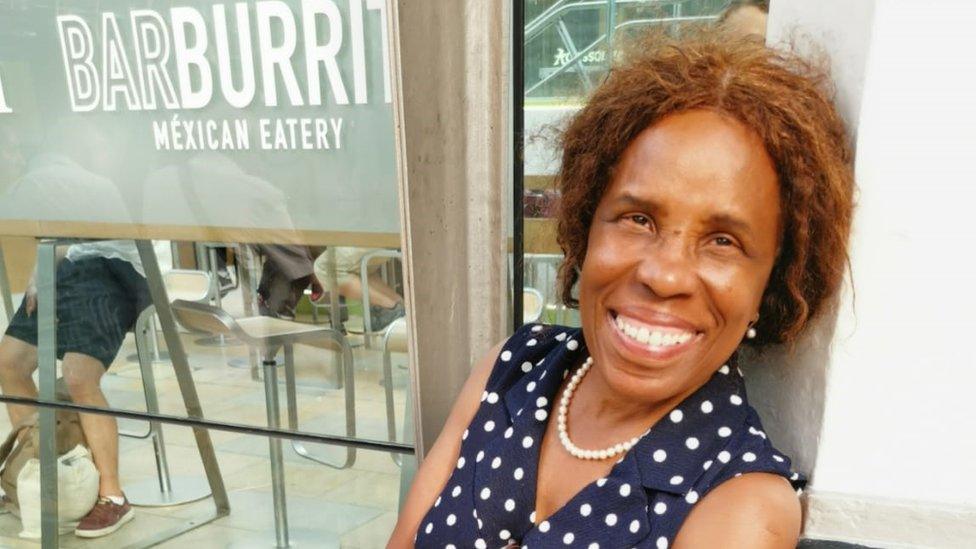
Linette Haines arrived in the UK when she was six years old
Their parents were turned away from jobs, excrement was pushed through their letter box and more than 100 people tried to evict them with a petition.
Church was a haven where they were able to congregate safely with other black families and they were not afraid to challenge the racism they received.
Ms Haines joined the Women's Royal Army Corps and travelled to 16 countries, but found it "a bit of a shock" when she signed up and was the only black person.
She now works as a civil servant in the submarine delivery agency at the Ministry of Defence and said, while people are not as overtly racist anymore, she still has to call out microaggressions.
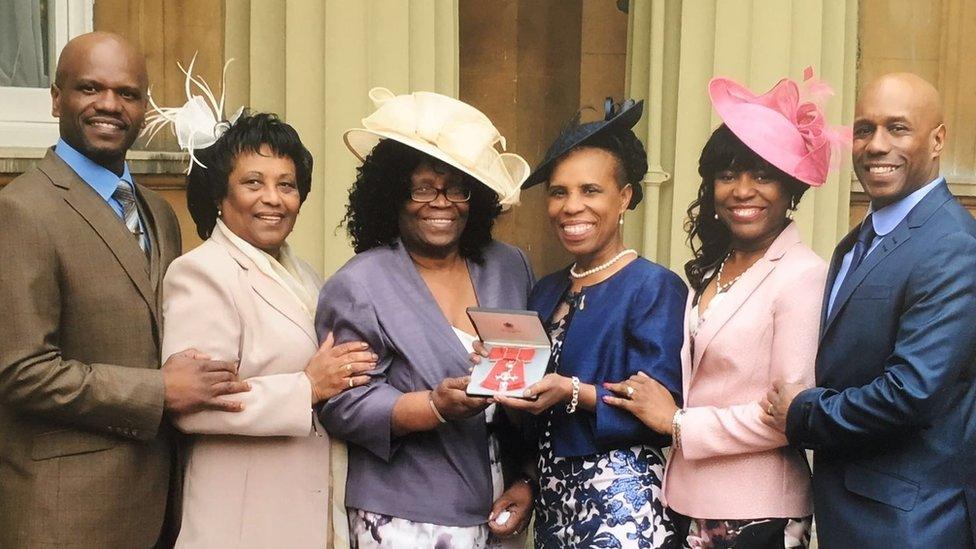
Linette Haines has been awarded an MBE after her parents travelled to Wales as part of the Windrush generation
Mr Roberts Wharton, who was born in Newport, remembers name-calling, fighting and bullying.
"You always had to prove yourself, whether you were stronger, you were faster, you were tougher," he said.
He said he was the first black footballer to represent Wales at under-15 level and the first black football manager in the Welsh Premier League.
But, he added, it was frustrating that there were still so many firsts to be made.
"My parents, they knocked the doors down so I can walk through, but there was still resistance so I've got to knock the doors down and make the place open-plan so my children and my grandchildren cannot even realise there was a door there in the first place," he said.
He now runs an anti-racism training and consultancy company and sits on the Football Association's Equality and Diversity Group. He is also a community councillor and foster carer.
He said people were still "uncomfortable" talking about race.
"Every day I could come across racism when I leave my house... if I didn't go out because of it then I would never leave my house again."
Last year, he attended the King's birthday party with his mum, exactly 62 years after she left for the UK.
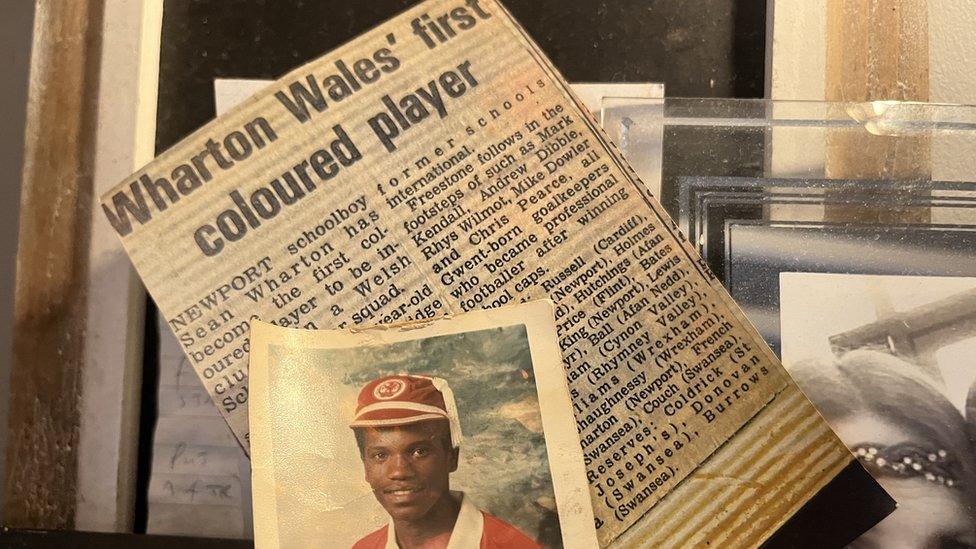
Sean Wharton was the first black player to represent Wales U15s
The Windrush scandal unfolded in April 2018 after it was revealed thousands of British people, mainly of Caribbean origin, were wrongly classed as illegal immigrants.
Many were deported, while others faced difficulty securing work, accessing healthcare or housing.
The Home Office said it was "committed to righting the wrongs of the Windrush scandal, already paying out more than £75m".
Through the Lens: Our Windrush Stories will be shown at 17:30 GMT on 25 January at the Newport Campus of the University of South Wales

THE AUBERGINE CAFE: Kizzy visits Wales' first neurodivergent-led sanctuary
MYFANWY HAYCOCK: Jenni is on a mission to revive the legacy

Related topics
- Published22 June 2023
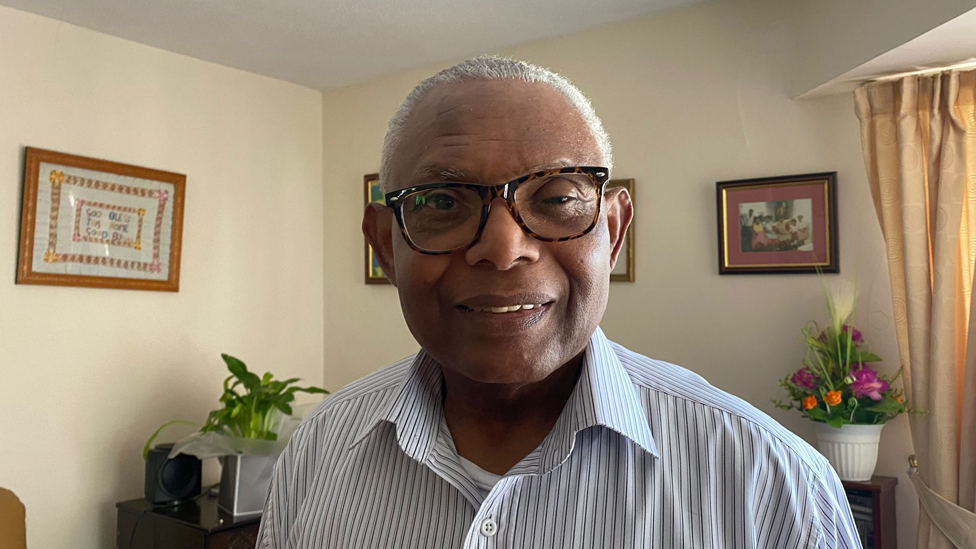
- Published22 June 2023
